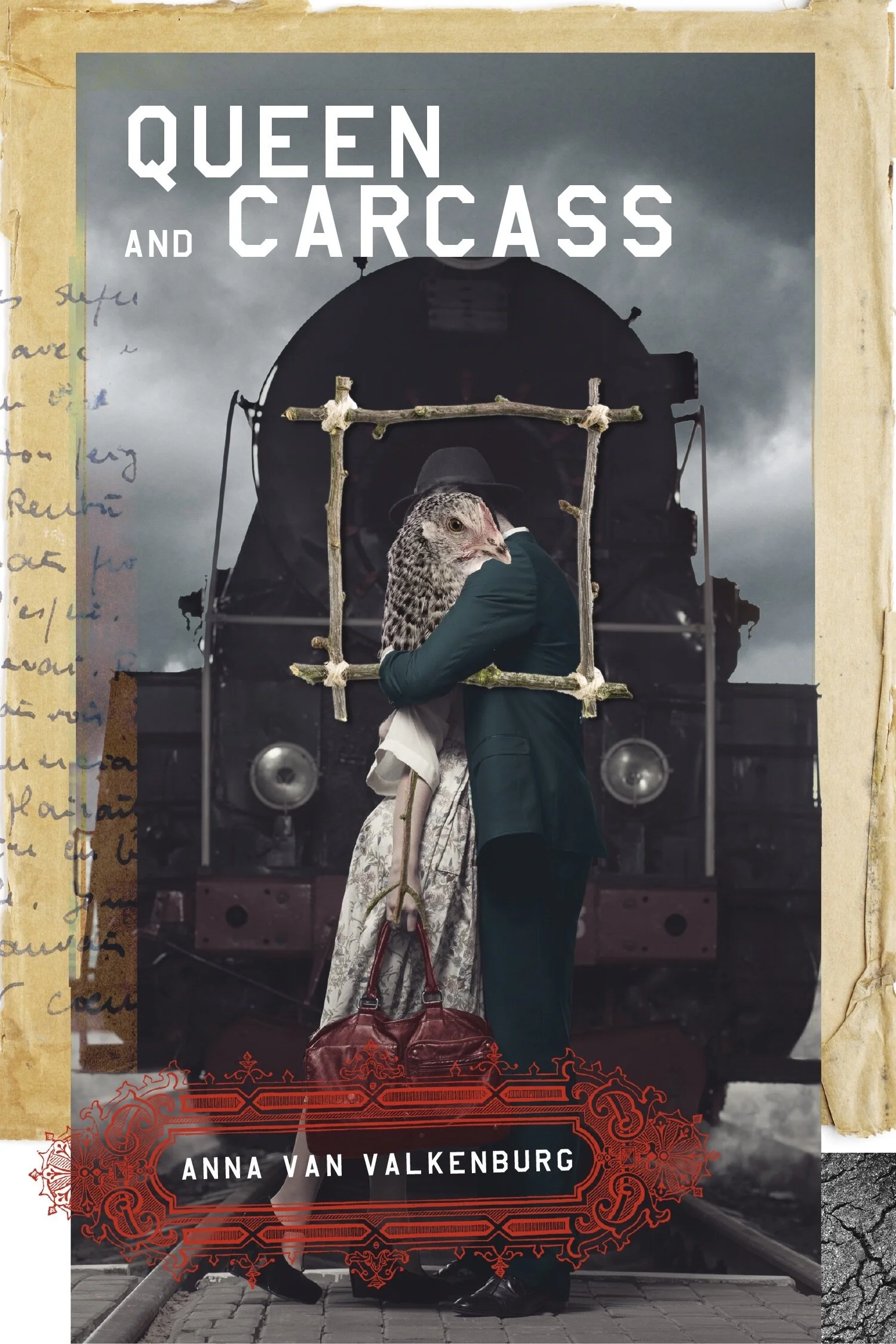Beauty and Monstrosity Converge in Queen and Carcass's Dreamworld
Take domestic Aunt Krystyna, as an exemplary case, who, after plucking a hen with the skill of a musician, is “at once queen and carcass.” Or is it the dead hen she is plucking?
Throughout the collected poems of Queen and Carcass, Anna van Valkenburg returns again and again to the flesh, displaying its mortality but also connecting it to selfhood, power, and even magic. Returning to Aunt Krystyna’s grisly plucking of the hen, van Valkenburg implies that everyday life is both tedious and violent. If we dissect what it means to be “at once queen and carcass,” it emphasizes a connection between mortality and transcendence, which appears in almost every poem. The line is written with purposeful ambiguity to entertain reference to both Aunt Krystyna and the dead hen, introducing an intriguing precariousness about whether nature is dominating or being dominated.
One may find comfort and nostalgia in a domiciliary scene of lavender on a kitchen window sill, such as in the poem “Dawn at the Edge of the Woods,” only to learn that the girl in the window has “fangs [that] cut through bark.” Throughout her book, van Valkenburg builds a world where beauty and monstrosity constantly intermingle, where trees knock at the kitchen window, calling the girl to “come in.” It is uncertain which realms should be desired and which are to be feared. The humanlike trees seem ancient and mystical, but their “crooked knuckles” seem ominous, as do the girl’s fangs despite the tranquillity of the kitchen. The reader feels unsure of whether the girl is being invited for a magical escapade through the forest or whether she is being tricked into something more sinister. The fierceness of femininity that van Valkenburg embraces suggests power in domesticity, where safety may be expected.
Wandering through van Valkenburg’s dreamlike world is exciting and rewarding; many of the poems captivate with their beauty, but then grab you by the throat. However, like any dreamworld, they’re at times disorienting. The poet’s religious and mythological imagery may enthrall some readers, but confuse others.
Those not familiar with Slavic folklore may feel lost regarding the poet’s connection with Rusalka, an entity in Slavic folklore van Valkenburg revisits consistently, exploring themes like femininity, sensuality, and agency. Along with five poems on Rusalka, each of the three parts of the collection is prefaced with an epigraph corresponding to one of the three acts of the opera Rusalka. That said, the poems can be valuable to any reader who appreciates van Valkenburg’s language and imagery, and wants to do a bit of reflection.
At the collection's culmination, Rusalka dispenses with ambiguity and explicitly declares her autonomy: “I won’t become an adjective.” Defying the ambiguous in-betweens and uncertain perspectives that inhabit the book, Rusalka claims the final word, asserting her independence directly to the reader. This proclamation affirms the powerful connection that woman and nature share in that they are tenacious and indomitable. Although their relationship is precarious, Rusalka affirms that she defines the terms of her connection with nature as well as the world as a whole.
Though her surreal and occasionally grotesque style may bewilder some, van Valkenburg’s poetry will appeal to readers with connections to folklore or questions about their relationship to self, body, and nature. This is a collection for those who have made friends with their inner black-toothed monster—or are at least open to discovering her.
Thank you to Anvil Press for providing Shrapnel with a media copy of Queen and Carcass, which is available now for purchase at Anvil Press’ website and in bookstores across Canada.
Erica Osko
lives in Edmonton, A.B. with her cat. She studied English in university, but that was a little while ago, so she's excited to get back into writing! She is a theatre nerd who could break into song at any moment, and her latest favourite reading genre is biographies of historical women. She organizes her books by colour, and she's sorry if you find that offensive.



